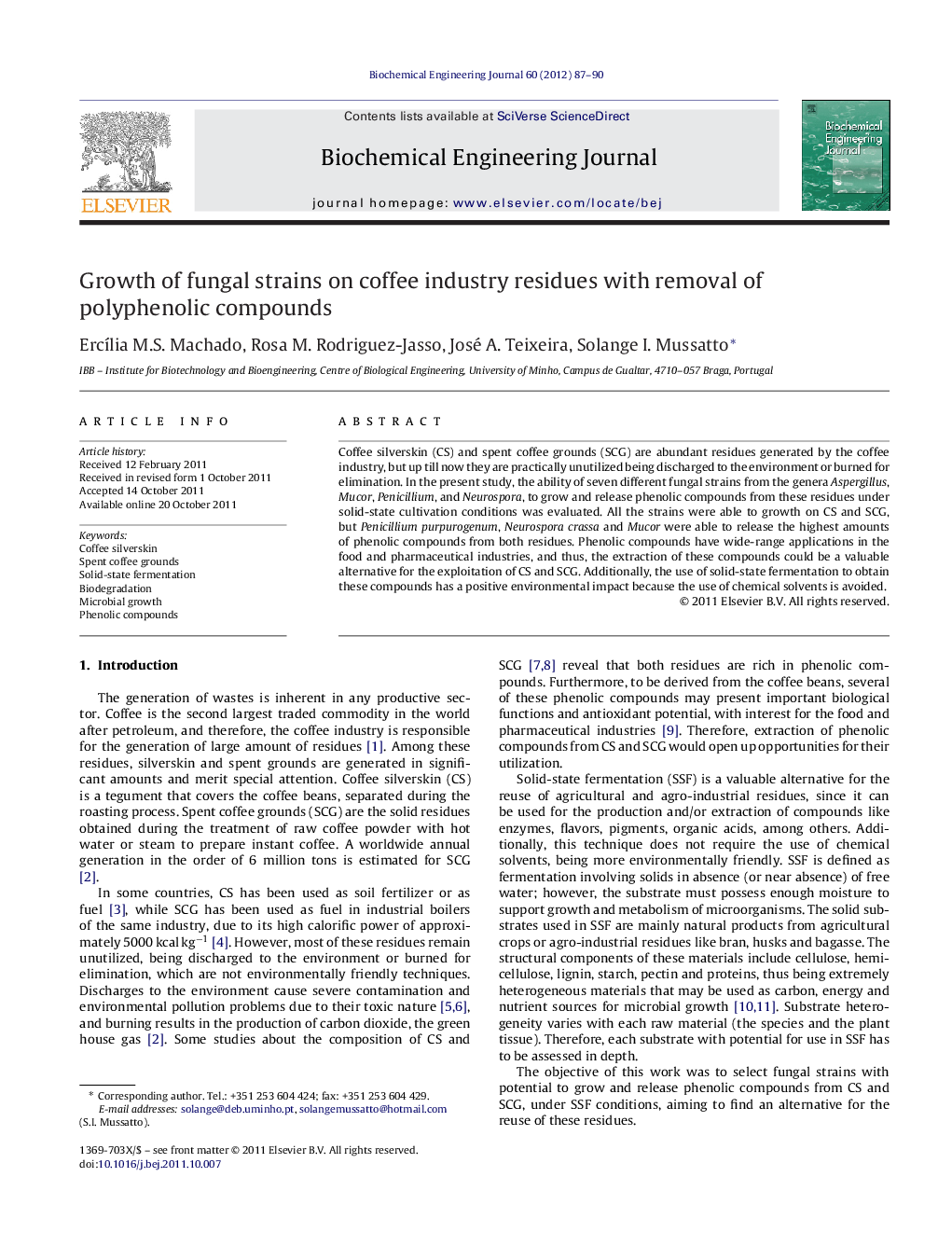| کد مقاله | کد نشریه | سال انتشار | مقاله انگلیسی | نسخه تمام متن |
|---|---|---|---|---|
| 3666 | 181 | 2012 | 4 صفحه PDF | دانلود رایگان |

Coffee silverskin (CS) and spent coffee grounds (SCG) are abundant residues generated by the coffee industry, but up till now they are practically unutilized being discharged to the environment or burned for elimination. In the present study, the ability of seven different fungal strains from the genera Aspergillus, Mucor, Penicillium, and Neurospora, to grow and release phenolic compounds from these residues under solid-state cultivation conditions was evaluated. All the strains were able to growth on CS and SCG, but Penicillium purpurogenum, Neurospora crassa and Mucor were able to release the highest amounts of phenolic compounds from both residues. Phenolic compounds have wide-range applications in the food and pharmaceutical industries, and thus, the extraction of these compounds could be a valuable alternative for the exploitation of CS and SCG. Additionally, the use of solid-state fermentation to obtain these compounds has a positive environmental impact because the use of chemical solvents is avoided.
Figure optionsDownload as PowerPoint slideHighlights
► Fungal strains were cultivated in coffee silverskin (CS) and spent coffee grounds (SCGs).
► Cultivations were performed under solid-state fermentation conditions.
► All the evaluated strains grown and released phenolic compounds from these residues.
► Penicillium purpurogenum, Neurospora crassa and Mucor gave the best results.
► Phenolic compounds extraction is a potential alternative for CS and SCG valorization.
Journal: Biochemical Engineering Journal - Volume 60, 15 January 2012, Pages 87–90